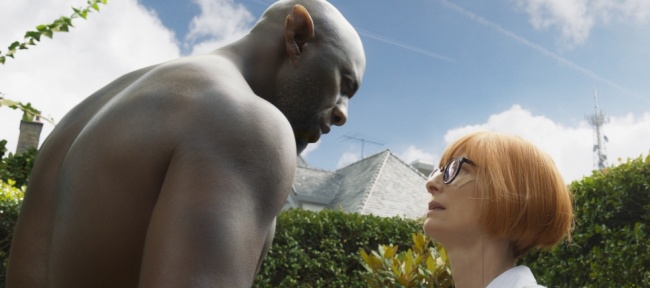‘Three thousand years waiting for you’ is the new film “from the director of ‘Mad Max: Fury Road’“, a phrase as true as it is misleading at the same time. A dangerous association, being easy to intuit that an important part of the less attentive public will be attracted and then disappointed by a film with few similarities to the aforementioned 2015 masterpiece. Perhaps for this reason, with good judgment, on his poster what is stated is the name of the director, George Miller. Yes, he is the director of the four installments of ‘MadMax’and at the same time, also, that of ‘The Witches of Eastwick’the film of his filmography closest to this ‘Three thousand years waiting for you’, an ambitiously intimate work whose benefits collide with the sharp edges of its cracked nature. To understand us: The intentions are more appreciated than the result, being one of those films that makes you angry not being able to love without any misgivings. Misgiving(s) filtering through their eclectic instability. A work reminiscent of titles such as ‘The Fall: Alexandria’s Dream’ that seems like a succession of moments (some more brilliant than others) that do not finish putting together a proper narrative, even though they support at all times the inexorable romantic ideal behind each of its frames: The art of love and storytelling , the props of a film emerged from chaos. In some way, ‘Three thousand years waiting for you’ it is like a beautiful vase that after falling to the ground has been reassembled piece by piece with glue. The result is not as beautiful, but the unique calligraphy derived from the accident together with its restrained extravagance give this adult reverse of children’s stories a strange character. From Eastwick to Istanbul, Miller changes joviality for melancholy without dispensing with that novelistic aura of the 80s. And it is that life happens for everyone even if the world continues to be there, noticing us or not. ‘Three thousand years waiting for you’ is a romantic drama that takes the form of a fantasy story to talk about the transforming and liberating power of words. A bittersweet reminder of our mortal idiosyncrasies, of the passing nature of our actions and of how, who more who less, are hostages of a reality that plays with us. Which Quixote rides on a perfumed romanticism that feels old and against the current, ‘Three thousand years waiting for you’ it is a stubborn work that juggles to fit its concerns within a somewhat disjointed discourse, especially in its last third. The result is something like ‘The man who killed Don Quixote’ by George Miller, a work admirable in its crude but luxurious and proud old-fashioned imperfection.
‘Three thousand years waiting for you’ – The storyteller

